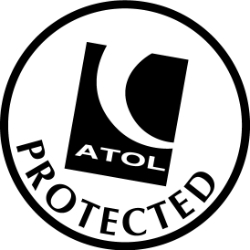 What is ATOL protection?
What is ATOL protection?
ATOL (Air Travel Organisers' Licensing) is a scheme run by the Civil Aviation Authority (CAA) that protects consumers if the travel operator that they book their holiday with collapses. If an ATOL-protected travel company ceases trading, the licence will protect customers who have booked holidays with the firm by ensuring they do not get stranded abroad or lose money. By law, every UK travel company which sells package holidays is required to be an ATOL holder.
Find the right Travel Insurance for you
Our partner Quotezone will compare quotes from up to 35 UK travel insurance providers
What does ATOL cover?
ATOL provides protection if your travel company goes bust. Most commonly ATOL protection is provided for package holidays which include flights, accommodation and car hire. Flight-only deals are unlikely to be covered by ATOL and flights bought directly with an airline do not provide ATOL protection.
How to check if a travel company is ATOL-registered?
Only ATOL members are able to display the ATOL logo on their adverts, brochures, and websites. You should always check a company's ATOL registration by conducting an ATOL search. Simply visit the Civil Aviation Authority website and type in your travel provider's name and ATOL number to complete your ATOL check. Even if your travel provider says that they are ATOL registered, it is worth completing a search as it will help you to identify whether it is genuine. Companies masquerading as being ATOL registered when they are not is not only an offence, but it also means you are not covered if that company goes bust.
What is an ATOL certificate?
If you book a holiday with an ATOL-protected provider, you will receive an ATOL certificate which provides useful information regarding who to contact if your holiday provider goes bust. Your certificate is also proof of your ATOL protection which you will need if you need to make a claim.
How is ATOL funded?
ATOL is funded by contributions made by travel companies. Each member company pays £2.50 into the scheme for each person they book on a holiday. This money creates the fund that is used by the CAA to ensure consumers either complete their holiday or - if they cannot get away - receive a full refund.
Do I need travel insurance if I have ATOL protection?
Yes, if you are booking a holiday you should always consider taking out a travel insurance policy in case the unexpected happens while you are away. Despite ATOL protection covering you if the travel provider goes bust, travel insurance covers medical issues, lost or stolen baggage or cancellation if you have a genuine reason for being unable to travel. ATOL protection only provides cover if the provider goes bust and does not cover any other eventuality.
Some travel insurance providers also provide protection if your travel provider goes bust, look for Scheduled Airline Failure Insurance (SAFI) or End Supplier Failure on your travel insurance policy.
How to make a claim if your travel company goes bust
If you need to claim on your ATOL protection, you will need to submit a claims form alongside your ATOL certificate, proof of booking, purchase receipts and additional information relating to your claim. ATOL aims to process most claims within 28 working days as long as no additional information is required.
If you are abroad while your ATOL-protected travel provider goes bust, ATOL will do its best to contact your accommodation provider to arrange your stay for the remainder of the trip before your return back to the UK. In some instances, this may not be possible so you may have to pay for your accommodation and submit a claim when you return to the UK.
What if my holiday is not ATOL protected?
If your holiday is not ATOL-protected then you will not be covered by the ATOL scheme if your holiday provider goes bust. You may be able to get your money back by claiming on Section 75 of the Consumer Credit Act if you paid for your trip via credit card, or the chargeback scheme if you paid on a debit card. Alternatively, if you have Scheduled Airline Failure Insurance included on your travel insurance policy, you may be able to make a claim.
How to ensure you are protected when buying a holiday
If you are planning a holiday, there are a number of things you can do to ensure you are protected against the provider going bust.
- Get travel insurance - You should take out a travel insurance policy as soon as you purchase a holiday to ensure you are protected right away. When looking for travel insurance, look out for Scheduled Airline Failure Insurance (SAFI) as this will protect you in the event that your provider goes bust. An easy way to compare travel insurance is via a comparison site such as Quotezone* or MoneySuperMarket* as you can compare multiple policies at once to help you find the best policy for your situation.
- Check for ATOL protection - Book your holiday with an ATOL-protected provider to provide security should the travel company go bust while you are away or before you travel. You should also take out travel insurance to cover other eventualities such as illness or lost baggage.
- Purchase using a credit card - If your holiday costs over £100 and you buy it using a credit card, you can benefit from protection from Section 75 of the Consumer Credit Act 1974 which can help you to reclaim the cost of your holiday should your travel provider go bust.
If a link has an * beside it this means that it is an affiliated link. If you go via the link, Money to the Masses may receive a small fee which helps keep Money to the Masses free to use. The following link can be used if you do not wish to help Money to the Masses or take advantage of any exclusive offers - Quotezone, MoneySuperMarket

 What is ATOL protection?
What is ATOL protection?




